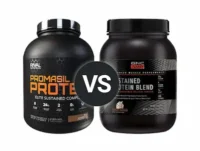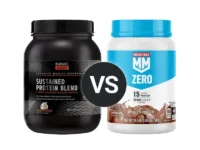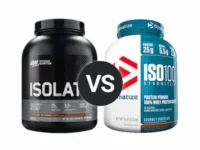Knowledge BaseYou're Questions Answered
Are all protein powders at risk of contamination with banned substances?
Protein powders are popular dietary supplements used by athletes, fitness enthusiasts, and individuals seeking to increase their protein intake. However, there is a potential risk of contamination with banned substances, which can have serious consequences for consumers, particularly athletes subject to drug testing. Not all protein powders are at equal risk of contamination, and the likelihood varies based on factors such as manufacturing practices, ingredient sourcing, and the reputation of the brand. Below, we explore the factors contributing to the risk of contamination and ways to mitigate this risk.
Factors Contributing to Contamination Risk
-
Manufacturing Practices
Contamination can occur during the manufacturing process if proper controls and quality assurance measures are not in place. Facilities that produce multiple types of supplements, including those containing banned substances, are at higher risk of cross-contamination. Good Manufacturing Practices (GMP) certification and third-party testing can help reduce this risk by ensuring rigorous standards are followed during production1.
-
Ingredient Sourcing
The source and purity of ingredients used in protein powders can also impact the risk of contamination. Raw materials sourced from suppliers with lax quality controls or poor traceability can introduce banned substances. It is crucial for manufacturers to work with reputable suppliers and conduct thorough testing of raw materials2.
-
Use of Prohormones and Stimulants
Some protein powders, especially those marketed as muscle-building or fat-burning products, may contain prohormones, stimulants, or other ingredients that are on the list of banned substances. These additions can be intentional or due to cross-contamination during manufacturing. Consumers should be cautious of products with complex ingredient lists or claims of extreme results3.
Mitigating the Risk of Contamination
-
Third-Party Testing and Certification
Choosing protein powders that have been third-party tested and certified can significantly reduce the risk of contamination. Certifications from organizations like NSF International, Informed-Sport, or Banned Substances Control Group (BSCG) indicate that the product has been tested for banned substances and meets specific safety and quality standards4. These certifications provide an additional layer of assurance for consumers, particularly competitive athletes.
-
Transparent Labeling and Ingredients
Opt for products with clear and transparent labeling, including a complete list of ingredients. Avoid products with proprietary blends, as they can obscure the actual ingredients and quantities, making it difficult to assess the potential for contamination. Reputable brands typically provide detailed information about their manufacturing processes and ingredient sourcing5.
-
Reputable Brands and Retailers
Purchasing from reputable brands and trusted retailers can reduce the likelihood of encountering contaminated products. Well-established brands are more likely to have stringent quality control measures and be transparent about their testing protocols. Consumers should also be cautious of purchasing supplements from unverified online sources, where counterfeit or poorly manufactured products may be more prevalent.
-
Awareness and Research
Staying informed about which substances are banned by major sports organizations, such as the World Anti-Doping Agency (WADA), can help consumers avoid risky products. It is also beneficial to research specific products and read reviews or reports from other consumers who may have experienced issues with contamination.
- Food and Drug Administration (FDA). (2013). Dietary Supplements. Retrieved from https://www.fda.gov/food/dietary-supplements
- Singh, M., & Devaraj, S. (2017). Protein powders: does the source matter?. Current Sports Medicine Reports, 16(3), 157-162.
- Martínez-Sanz, J. M., Sospedra, I., Mañas, V., Baladía, E., Gil-Izquierdo, A., & Ortiz, C. M. (2017). A review of the use of prohormones in sports. Nutrición Hospitalaria, 34(1), 93-98.
- World Anti-Doping Agency (WADA). (2020). 2020 Prohibited List. Retrieved from https://www.wada-ama.org/en/what-we-do/prohibited-list
- McArdle, W. D., Katch, F. I., & Katch, V. L. (2015). Exercise Physiology: Nutrition, Energy, and Human Performance. Lippincott Williams & Wilkins.
Related Questions
Related Reviews
Your Answer
We are a participant in the Amazon Services LLC Associates Program, an affiliate advertising program designed to provide a means for us to earn fees by linking to Amazon.com and affiliated sites.



